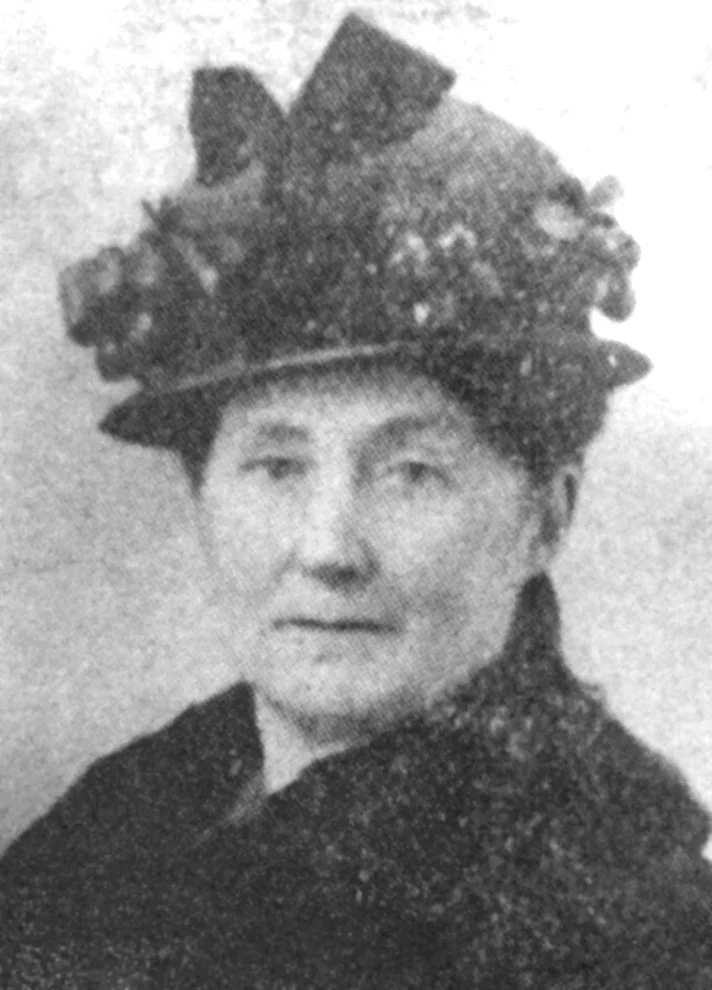Miss May Furlong
Miss May Furlong
She closed her store to help the war effort – and left a legacy that’s still seen every November
Miss May Furlong (1861–1938) exemplified the dedication of numerous women from Newfoundland and Labrador who supported troops during the First World War. At that time, Newfoundland and Labrador were separate from Canada, making their contributions particularly noteworthy.
Born in Oderin, Placentia Bay, she left home to work as a milliner and later worked, for many years, in a ladies’ clothing store. In 1899 she established her own women’s clothing store which she ran, very successfully, for nearly twenty years.
On November 22, 1915, amid the war, she organized a one-day patriotic sale, donating the proceeds to the Women’s Patriotic Association (WPA). Founded in 1914 by Lady Margaret Davidson, the WPA mobilized over 15,000 women across the island to produce essential items like socks, shirts, and bandages for soldiers overseas. They also provided medical supplies and supported families of servicemen.
In 1918, Furlong closed her store to focus entirely on assisting returning veterans. She joined the Women’s Auxiliary of the Great War Veterans’ Association (GWVA), a precursor to the Royal Canadian Legion, serving as its President for thirteen years and as Vice-President for two years.
Furlong played a pivotal role in introducing the poppy as a symbol of remembrance in Newfoundland and Labrador. Reverend Thomas Nangle, a Newfoundland padre and Catholic priest stationed in England, observed the poppy being used to commemorate Armistice Day. He suggested to the GWVA in Newfoundland that they adopt the practice. Furlong, an active member, embraced the idea, leading efforts to sell poppies to honor fallen soldiers and raise funds for veterans and their families.
In recognition of her unwavering service to ex-servicemen and their families, May Furlong was awarded the Order of the British Empire in 1937.
Announcement of the grand opening of May Furlong’s millinery store from the September 14, 1899, issue of The Evening Telegram. This ad was very prominently placed on the front page at the top of the centre column, right under the masthead.
The Evening Telegram, November 20, 1915. Advance ad for May Furlong’s famous Patriotic Bazaar which was held a few days later on November 22, 1915.
Photo of May Furlong (left) along with two other ladies of the GWVA Auxiliary. From The Veteran, April, 1928. The caption states that May was, at that time, the President of the auxiliary.
-
Image Sources:
Travis, Nick (2019). Saluting May Furlong. The Newfoundland Herald. https://nfldherald.com/saluting-may-furlong/
Store opening ad
Evening Telegram. (1879 – 1899). In Memorial University of Newfoundland – Digital Archives Initiative. https://collections.mun.ca/digital/collection/telegram18/id/52343/rec/6128
Advance Ad for Patriotic Bazaar
Evening Telegram. (1879 – 1899). In Memorial University of Newfoundland – Digital Archives Initiative. https://collections.mun.ca/digital/collection/telegram19/id/6173/rec/18
Photo of May with others
The Veteran. (1928, Vol.7, No.1. p.54.) In Memorial University of Newfoundland – Digital Archives Initiative. https://collections.mun.ca/digital/collection/cns_veteran/id/28900/rec/3
References:
Further and more detailed information on Miss May Furlong can be found in the following book:
Browne, Susan Chalker (2019). Mother of the Regiment and Other Remarkable Women of Newfoundland and Labrador. Flanker Press Limited, St. John’s.Order of the British Empire
OBE to Newfoundland (OBE), p6
01/02/37+ FURLONG, May Miss For Services to ex Servicemen & their Families OBE
https://www.blatherwick.net/documents/British%20Orders%20to%20Canadians/20%20-%20Newfoundland%20Honours%20%26%20Awards.pdfHiggins, Jenny (April 2015). https://www.heritage.nf.ca/first-world-war/articles/womens-patriotic-association-en.php
The Rooms. (n.d.). Effects of the First World War. The Rooms. https://therooms.ca/entering-great-war/effects-first-world-war

